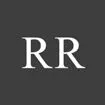- in United Kingdom
- with readers working within the Banking & Credit and Securities & Investment industries
Joshua Ray of financial crime specialists Rahman Ravelli assesses the issues in the case.
The US has fined a Hong Kong company $5 million after several employees conducted business that breached sanctions on Iran.
The US Office of Foreign Assets Control (OFAC) fined the Hong Kong-based trading arm of Japanese company Sojitz over $5.2 million. The company had used US financial institutions to help it buy 64,000 tonnes of Iranian-produced high-density polyethylene resin from a Thai supplier.
The resin - which is used for plastic pipes, tanks and packaging – was then sold to Chinese buyers between 2016 and 2018. Sojitz's Hong Kong subsidiary paid $75 million to the Thai supplier using US banks, which OFAC said was a violation of Iranian sanctions. Some of the subsidiary's Hong Kong-based employees ignored the company's compliance policies.
Those employees asked the Thai supplier not to make any mention of Iran on the paperwork and told their colleagues that the polyethylene resin had been produced in Thailand. But when the company discovered the truth, it dismissed those responsible and disclosed the conduct to OFAC.
OFAC said the deal provided Iran with "significant economic benefits" that undermined US sanctions aimed at the Iranian petrochemical industry. It added that companies need to "conduct robust risk assessments'' to identify their activities that pose sanctions risks.
The case highlights OFAC's continued use of novel and aggressive enforcement theories. These theories reflect OFAC's intention to expand its jurisdiction and initiate enforcement cases against non-US entities, based solely on the transfer of funds through US correspondence accounts. This effectively means that any transaction in US dollars could make the recipient and the sending party subject to US sanctions.
The content of this article is intended to provide a general guide to the subject matter. Specialist advice should be sought about your specific circumstances.


